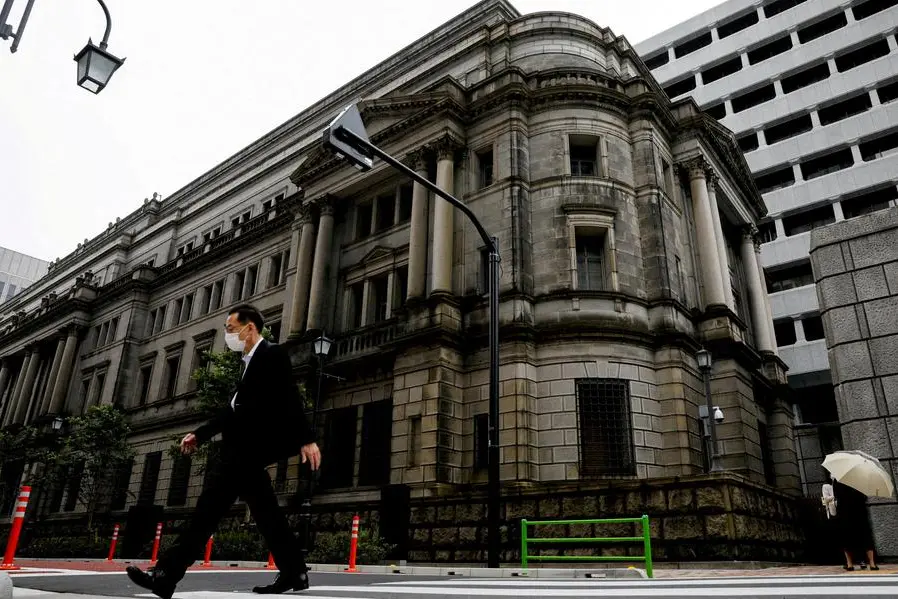PHOTO
The Bank of Japan may end its negative interest rate policy in April if next year's annual wage negotiations heighten prospects of inflation sustainably hitting its 2% target, the central bank's former executive Kazuo Momma said on Wednesday.
With inflation already exceeding the BOJ's target for more than a year, many market players expect the central bank to raise short-term interest rates to around zero from -0.1 next year with some betting on the chance of action in January.
Momma said he expects the BOJ to hold off on ending negative rates at least until April, when there is more clarity on next year's wage negotiations and whether the U.S. economy can make a soft-landing after aggressive rate hikes by the Federal Reserve.
"My baseline scenario is for the BOJ to end negative rates in April, though the chance of this happening is 50-50," he told Reuters in an interview, adding the bank could wait longer if the outcome of wage negotiations prove disappointing.
Japan's stagnant economic growth and global uncertainities could also delay an exit from ultra-loose policy, he added.
The chance of an exit will heighten if average wages rise around 4% next year, Momma said. A hike equivalent to this year's 3.58% would make the BOJ's decision "very tricky," said Momma, who retains close contact with incumbent policymakers.
When ending negative rates, the BOJ will also remove yield curve control (YCC) and a pledge to continue expanding the monetary base until inflation stably exceeds 2%, he said.
The BOJ currently guides short-term rates at -0.1% and sets a target for the 10-year bond yield around 0% under YCC, as part of efforts to sustainably achieve its 2% inflation target.
Under pressure to phase out its massive stimulus amid sticky inflation, the BOJ tweaked YCC in October to allow long-term rates to rise more. Momma said the move essentially made YCC dysfunctional, and paved the way for ending negative rates.
Upon ending negative rates, the BOJ will revert to a policy targeting the overnight call rate and could raise the rate to around 0.5% next year if inflation stays near 2%, he added.
"For now, the BOJ is probably leaving all options open, as it feels that uncertainty over the outlook is very high," said Momma, who is now an executive economist at private think tank Mizuho Research Institute.
The BOJ has said next year's spring wage talks between business and unions will be key to the timing of an exit. Many big firms typically settle pay around mid-March.
(Reporting by Leika Kihara and Takahiko Wada; Editing by Simon Cameron-Moore)





















